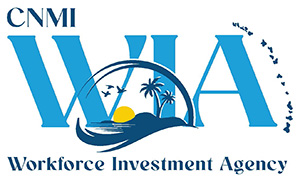WORK EXPERIENCE AND INTERNSHIPS
Work experiences or internships are planned, structured learning experiences that take place in a workplace for a limited period. Work experiences or internships may be paid or unpaid, as appropriate and consistent with other laws, such as the Fair Labor Standards Act. Work experiences or internships may be within the private for-profit sector, the non-profit sector, or the public sector.
For youth, work experiences may also include:
- Pre-apprenticeship programs;
- Summer employment and other employment activities available throughout the school year;
- Internships and job shadowing; and
- On-the-job Training
ON-THE-JOB TRAINING (OJT)
OJT provides reimbursements to employers to help compensate for the costs associated with skills upgrade training for newly hired employees and the lost production of current employees providing the training (including management staff). OJT training can assist employers who are looking to expand their businesses and who need additional staff trained with specialized skills. OJT employers may receive up to 50% reimbursement of the wage rate of OJT trainees to help defray personnel training costs.
REGISTERED APPRENTICESHIP PROGRAM
Registered Apprenticeship Program is an employer-driven, “earn while you learn” model that combines on-the-job training (OJT) with job-related instruction in curricula tied to the attainment of industry-recognized skills standards. The employer typically provides OJT only, but in some cases may also provide RTI. WIOA funds may be used to support classroom instruction as well as the OJT component. WIOA funds may also be used to provide supportive services to participants that help them succeed in apprenticeship programs.
PRE-APPRENTICESHIP PROGRAM
A pre-apprenticeship is a program designed to prepare individuals to enter and succeed in a registered apprenticeship program, which includes:
- Training and curriculum that aligns with the skill needs of employers in the economy of the State or region;
- Access to educational and career counseling, and other supportive services;
- Hands-on, learning activities connected to education and training activities, such as exploring career options and understanding how skills acquired through coursework can be applied to a future career
- Opportunities to attain at least one industry-recognized credential; and
- A partnership with one or more registered apprenticeship programs that assists in placing individuals who complete the pre-apprenticeship into a registered apprenticeship program
TRANSITIONAL JOBS
Transitional jobs are a type of work-experience local boards may provide under WIOA and are considered an individualized career service. Transitional jobs are time-limited and wage-paid work experiences that can be subsidized up to 100 percent. These jobs are in the public, private, or nonprofit sectors.
CUSTOMIZED TRAINING
Customized training is designed to meet the specific requirements of an employer or group of employers with the commitment that the business or businesses employ an individual(s) upon successful completion of the training. In most instances, the business must pay for a significant portion of the cost of training, as determined by the Local Workforce Development Board (WDB).
INCUMBENT WORKING TRAINING
Incumbent Worker training is designed to meet the needs of an employer or group of employers to retain a skilled workforce or avert layoffs. Incumbent Worker training can be used to either:
- Help avert potential layoffs of employees; or
- Obtain the skills necessary to retain employment, such as increasing the skill levels of employees so they can be promoted within the company and create backfill opportunities for new or less-skilled employees.
Unlike other training, employers, instead of individuals, must meet the local eligibility criteria to receive funds for training their workforce. In most circumstances, incumbent workers being trained must have been employed with the company for at least six months. Employers who receive these funds are required to meet requirements for providing the non-federal share of the cost of the training.



